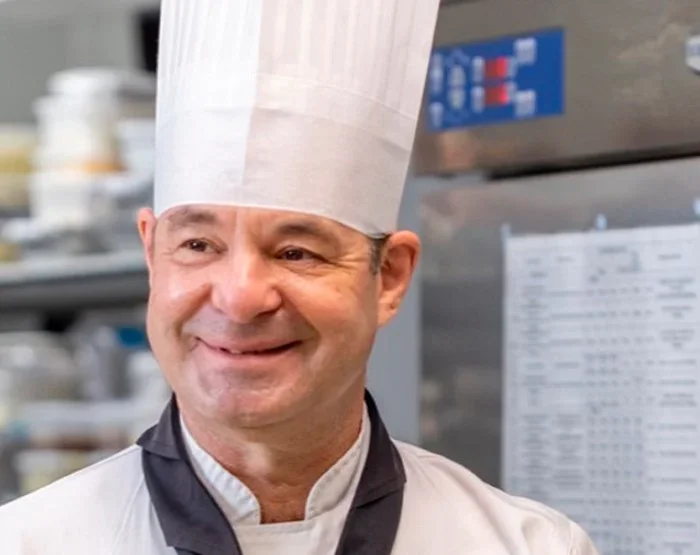The evolving role of chefs in aged care
/By Chef Jeffrey Richard Gear
Senior Vice President – Australian Institute of Technical Chefs (AITC)
Former Royal Household Chef, Culinary Consultant, Aged Care Advocate
As Australian hospitality continues to rebound from pandemic disruptions and workforce shortages, a quiet but powerful revolution is taking place within the aged care sector. Once regarded as the final chapter in a chef’s journey, aged care is now emerging as one of the most complex, challenging and purpose-driven sectors in modern foodservice.
The era of high-volume institutional cooking is over. In its place is a new expectation of culinary excellence, clinical collaboration, personalised nutrition and dining experiences that reflect dignity, culture and joy.
The question facing us is not “Can chefs work in aged care?” but rather:
“Are we equipping chefs with the tools and training to thrive in this highly specialised culinary field?”
The surge in demand for culinary talent in aged care
Australia’s aged care sector is expanding at an unprecedented rate. By 2050, over 8 million Australians will be aged 65 or older. With more residents entering aged care facilities with higher acuity needs - dementia, dysphagia, chronic illness, cultural diversity - foodservice is no longer an afterthought. It is central to care.
Recent Royal Commission findings and the introduction of Standard 6 – Food, Nutrition and Dining within the Aged Care Quality Standards have forced providers to move away from low cost, mass cooked meals to more responsive, resident-led and nutritionally fortified offerings. And at the heart of this transformation stands the chef - not as a production worker, but as a clinical hospitality leader.
Beyond the kitchen: the modern chef’s mandate in aged care
Aged care chefs today must wear multiple hats:
Culinary artist – balancing presentation, aroma, texture, and flavour
Nutritional guardian – adapting menus to fortify meals, support hydration, and address specific clinical needs
Cultural ambassador – tailoring meals for ethnic, religious, and lifestyle preferences
Health and safety expert – complying with HACCP, FSANZ, IDDSI, and Standard 6 audits
Resident liaison – actively engaging consumers in menu reviews and satisfaction surveys
Workforce leader – training junior kitchen staff, managing rosters, and collaborating with clinical teams
This expanded scope requires new skills and a complete reinvention of how we train, support and recognise chefs in the aged care sector.
Core areas where aged care chefs need advanced training
1. Clinical Nutrition for the Elderly
Chefs must understand the evolving physiology and dietary needs of older adults:
Protein-energy malnutrition and frailty prevention
Fortified meals using butter, cream, milk powder or supplements
Adjusting meals for conditions like diabetes, renal failure, coeliac disease or COPD
Working alongside dietitians to adapt menus based on individual care plans
Recommended Training:
Short courses in Nutrition for Older Adults
Workshops on malnutrition screening tools (eg MST)
Fortification and texture modification techniques
2. Mastery of IDDSI Standards and Dysphagia Management
With over 50 per cent of aged care residents experiencing swallowing disorders, chefs must be fluent in IDDSI Level 3–7 and ensure textural compliance through testing and documentation.
Training Essentials:
IDDSI framework training (flow test, spoon tilt test, fork drip test)
Moulded food production and puree plating techniques
Staff validation on safe texture handling
3. Standard 6 and Person-Centred Menu Planning
Standard 6 requires menus to be designed with residents, not for them. Chefs must facilitate consultation, document preferences and adapt menus to cultural, religious and personal choices.
Key Competencies:
Leading food focus groups and resident taste panels
Implementing alternate main courses at lunch and dinner
Incorporating family recipes and heritage dishes
4. Digital Systems and HACCP Compliance
The era of clipboard HACCP is ending. Digital platforms such as Desert City Wellbeing, Monika, Delegate, CBORD, and SoftLogic are standardising compliance, ordering and documentation.
Required Skills:
Digital literacy in e-HACCP tracking, menu software and ordering systems
Allergen and incident reporting in realtime
Integrating resident choice platforms into production schedules
5. Leadership, Management, and Multidisciplinary Collaboration
Chefs must now operate at the intersection of hospitality and healthcare, often reporting to both operations managers and clinical teams. Strong leadership and communication are non-negotiable.
Training Needs:
Certificate IV in Leadership & Management (or Diploma)
Dementia-friendly communication and emotional intelligence
Collaborating with nurses, OTs, physios, speech pathologists, and GPs
More next issue.





